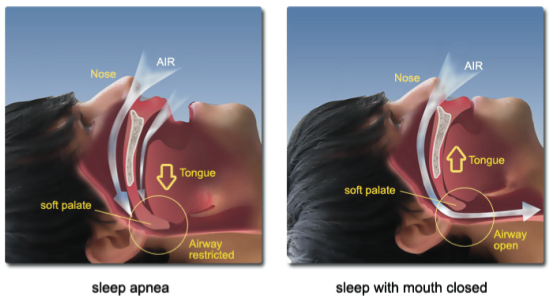Obstructive Sleep Apnea (OSA)
| What is Sleep Apnea? | |
|---|---|
|
Sleep Apnea is a common condition affecting millions of people. Many who suffer from this condition are unaware of the diagnosis and often not properly treated. Unfortunately, without appropriate intervention, it often leads to many serious major illnesses. |
|
 |
|
|
Sleep Apnea occurs when there is cessation of breathing during sleep. The most common type is obstructive sleep apnea (OSA) and is due to blockage of the upper airway by excessive or drooping of soft tissues, e.g. tongue, soft palate, uvula, or simply enlarged tonsils. During each apnea event, the decrease in oxygen level and the rise in carbon dioxide content in the blood trigger an arousal from sleep due to the reactive stimulation from the brain. More importantly, apnea events can occur repeatedly for hundreds of times during sleep without the patient knowing such occurrences. Repeated apnea events lead to a significant reduction of oxygen going to the lung, and to other vital organs. Chronic oxygen desaturation eventually causes permanent damage to all organs, especially the brain and the heart. |
|
Untreated OSA can be serious and fatal. The following illnesses are known to be associated with OSA: |
|
|
Beside serious medical problems, OSA often causes serious negative impacts on patients' lives (in addition to snoring and poor quality sleep), they include: |
|


